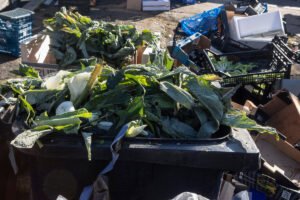Wednesday, 18 February 2026
From Saudi, Qatar to China and Australia countries ring in new codes for food safety
These standards not only guide the development of laws and regulations but also inform various measures aimed at upholding the highest quality standards and ensuring the safety of food for…

These standards not only guide the development of laws and regulations but also inform various measures aimed at upholding the highest quality standards and ensuring the safety of food for consumption
Food standards are vital for ensuring the safety and quality of the food supply chain from production to consumption. Across different countries, adherence to Codex standards and texts establishes a strong legal framework for food safety. These standards not only guide the development of laws and regulations but also inform various measures aimed at upholding the highest quality standards and ensuring the safety of food for consumption. Let’s delve into recent food safety activities in various countries.
Saudi Arabia:
The Saudi Food and Drug Authority (SFDA) has taken steps to promote healthier dietary habits during Ramadan by issuing comprehensive guidelines. These guidelines emphasise incorporating whole grains like wheat and oats, along with low-fat dairy products, fruits, and vegetables into daily meals. The SFDA also recommends a balanced intake of legumes, fish, eggs, and lean meats for optimal protein consumption. Additionally, the SFDA advocates for prudent fat intake and staying hydrated by consuming six to eight glasses of fluids daily, especially during non-fasting hours.
Philippines:
In the Philippines, the Department of Agriculture (DA) has partnered with local government units and academic institutions to extend the ‘0KM’ food project to communities. This initiative aims to establish a streamlined data collection system at the grassroots level to better understand local food supply and demand dynamics. Aligned with the vision of promoting sustainable local food production, the ‘0KM’ project empowers agriculture at the barangay level, ensuring efficient food distribution to consumers while minimizing intermediaries.
Qatar:
The Ministry of Public Health (MoPH) in Qatar has expanded its electronic food safety system, ‘Watheq,’ by introducing five new electronic services. These additions streamline processes related to food consignment inspection for export and re-export, as well as facilitate requests for food export and re-export certificates. Wassan Abdullah Al Baker, Director of the Food Safety Department at MoPH, highlights the transformative impact of these enhancements, which enhance accessibility for importers, suppliers, and regulatory authorities.
European Union:
In a significant development, more than 20 algae species have been incorporated into the EU Novel Food Status Catalogue. This collaborative effort between the European Commission and EU Member States facilitates the marketing of these algae species as food or food supplements, promising expedited marketing authorization processes and potential cost savings for the EU algae industry. Additionally, the European Parliament’s Committee on the Environment, Public Health, and Food Safety (ENVI) has endorsed a new packaging regulation aimed at curbing plastic waste, demonstrating the EU’s commitment to environmental sustainability.
Ethiopia:
Ethiopia has embarked on the Cool Port Addis project, aimed at facilitating the cooled export of horticultural crops to global destinations. This initiative enhances the sustainability of the supply chain and provides Ethiopian farmers with expanded access to export markets. Leveraging innovative transportation modes such as rail and shipping, the project augments Ethiopia’s agricultural exports and contributes to economic growth.
Australia:
The Australian Food Cold Chain Council (AFCCC) is intensifying efforts to position its website as a comprehensive resource hub for cold chain compliance nationwide. This strategic focus includes developing Cold Food Codes and forging alliances with industry stakeholders to promote best practices in cold chain management.
China:
China’s enactment of a food security law underscores its commitment to safeguarding grain supplies for its population. Prioritizing the protection of arable land, the law aims to ensure long-term food security amidst challenges such as limited arable land and growing demand for grain.
These recent initiatives across various countries reflect a collective commitment to enhancing food safety, promoting sustainable practices, and ensuring the availability of safe and nutritious food for all.
Shraddha Warde
shraddha.warde@mmactiv.com
Technology
Carlsberg Launches AI-Crafted Lunar New Year Packaging
Feb 17, 2026 | Beverages
FAO Experts Assess Risk of Antimicrobial Resistance Spreading via Food Loss and Waste
Feb 17, 2026 | Sustainability
Setting the Standard for Sustainable Ingredients
Feb 16, 2026 | Ingredients
Food Testing
Redefining Trust in Organic Foods through Independent Testing
Feb 13, 2026 | Food Safety and Testing
AFNOR International Eyes Global Food Safety Growth with HACCP Group Takeover
Feb 04, 2026 | Australia
More Popular
New Australian Wine Future Fund to Boost Research and Venture Investment
Feb 18, 2026 | Australia
Cerealto Sells Pasta Unit to Specialist Player Cerealis
Feb 17, 2026 | Company News
New Nestlé Vital nutritional drink targets rising demand for healthy-ageing solutions
Feb 17, 2026 | Company News






